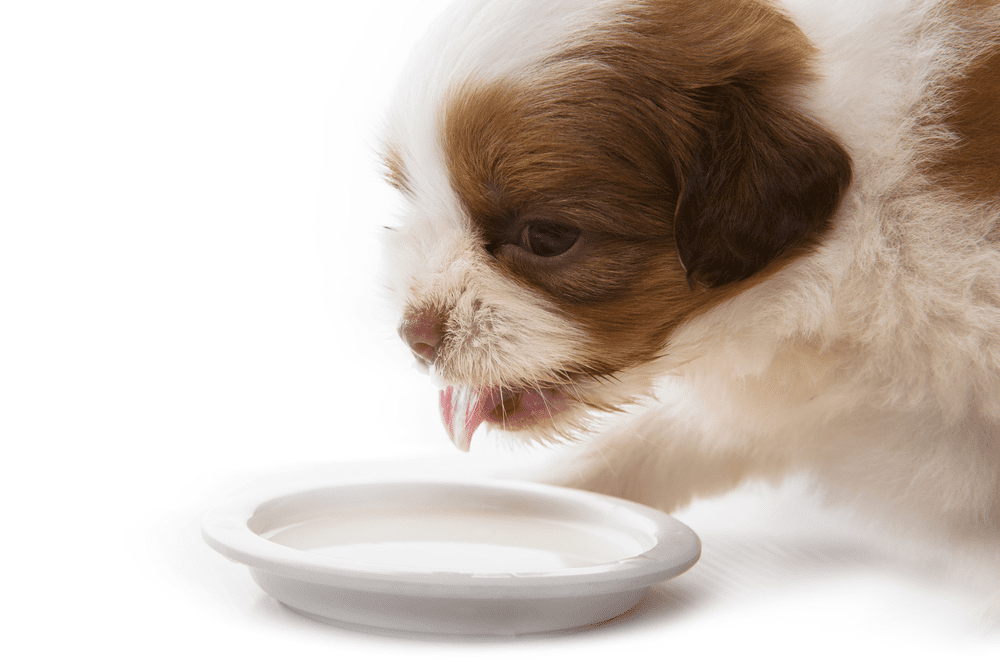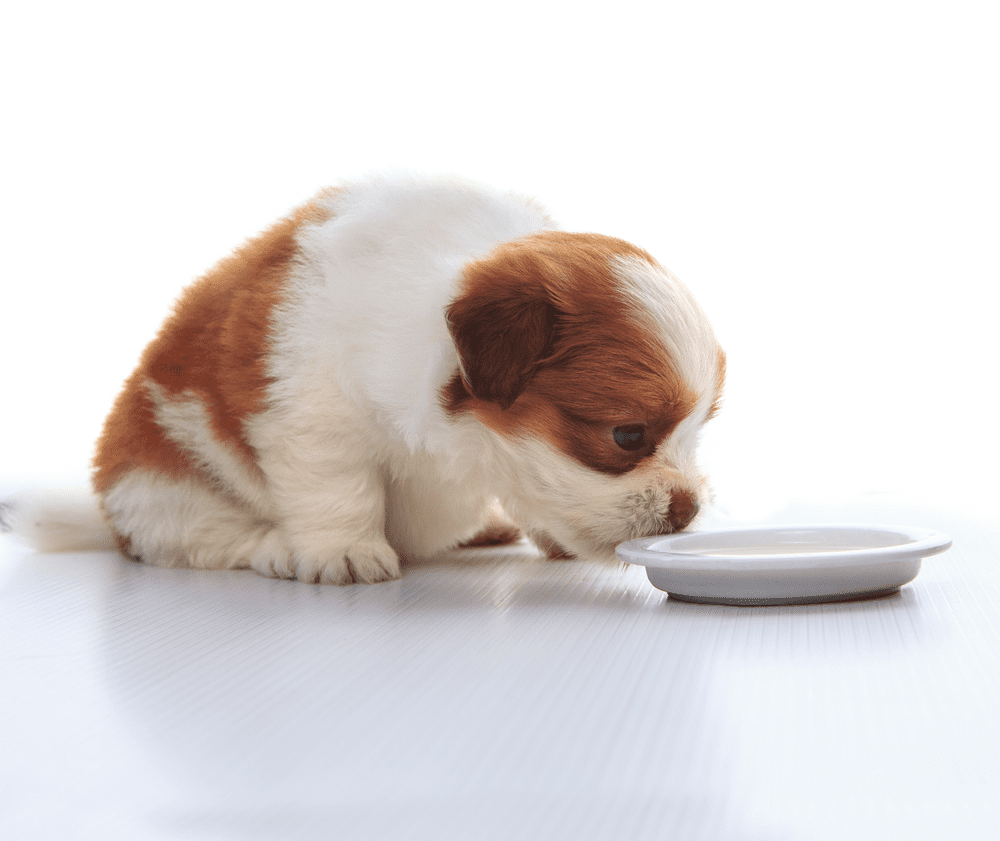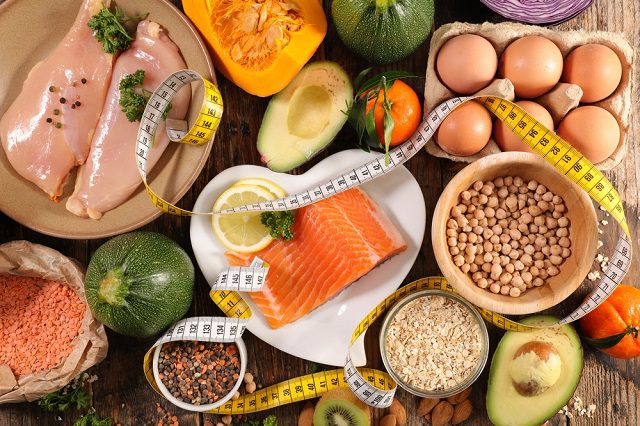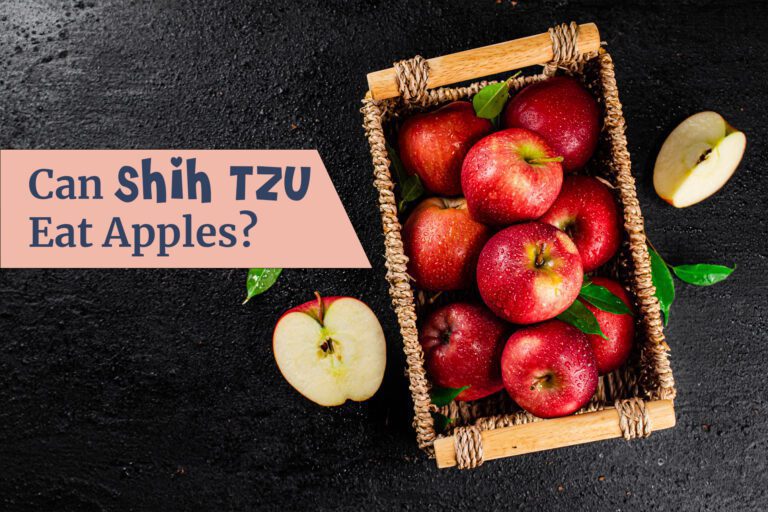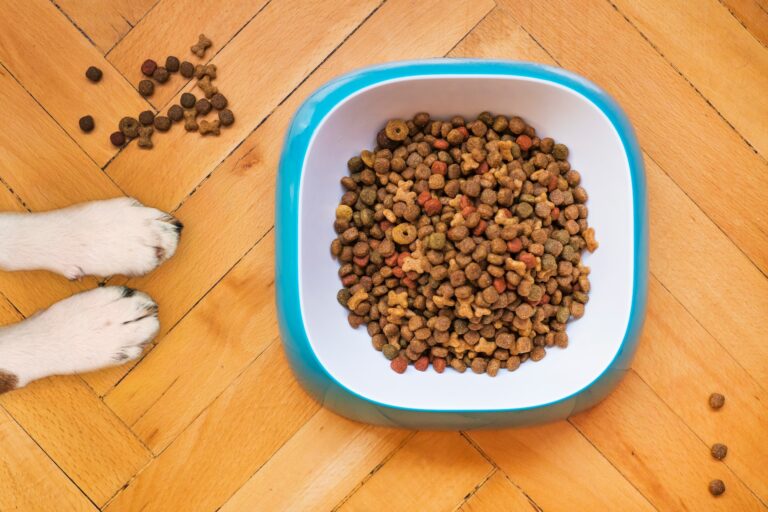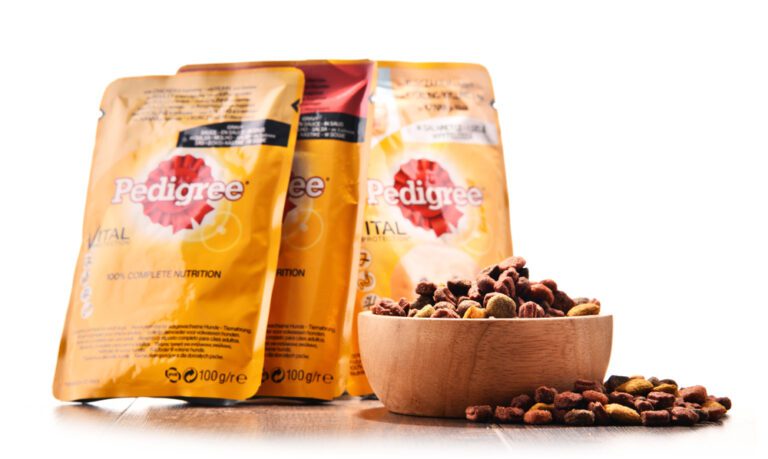Shih Tzu Drink Milk: Healthy or Harmful?
Shih Tzus, with their cute faces and small size, are loved by people everywhere. Like any pet, these little dogs have exceptional food needs to stay healthy and happy. Many Shih Tzu owners wonder if it’s okay for their furry friends to drink milk. “Shih Tzu Drink Milk: Healthy or Harmful?” Is this a concern you might have as a responsible pet owner? Imagine your Shih Tzu looking up at you with those big, trusting eyes, hoping to taste your snack—should you share your milk with them? This is a big question; knowing the correct answer is essential to keep your pet feeling great.
Lactose Intolerance in Dogs
Lactose intolerance results from a dog’s inability to break down lactose due to insufficient lactase levels. Unlike some mammals that maintain lactase production throughout their lives, many dogs decrease lactase production as they mature past weaning age. This evolutionary trait means consuming milk after the puppy phase can lead to digestive disturbances, as their system isn’t equipped to handle lactose effectively.
Signs of Lactose Intolerance in Shih Tzus
In addition to the typical symptoms listed earlier, there are other less obvious signs that your Shih Tzu might be struggling with lactose intolerance:
- Changes in Appetite: A Shih Tzu with stomach discomfort may lose interest in eating, even if the food offered does not contain lactose.
- Licking or Chewing Paws: Some dogs might lick or chew at their paws due to stress from stomach discomfort.
- Restlessness: A dog’s inability to find a comfortable position due to abdominal pain can cause it to seem restless or unable to settle.
- Changes in Behavior: Dogs in discomfort may be more irritable or less social than usual.
Management Strategies for Lactose Intolerant Shih Tzus
If you suspect your Shih Tzu is lactose intolerant, it’s crucial to adjust their diet accordingly:
- Eliminate Lactose Sources: Remove all sources of lactose from your dog’s diet, including cow’s milk, cheese, and certain processed pet foods.
- Consult a Veterinarian: A vet can confirm lactose intolerance and help you plan a suitable diet for your pet.
- Offer Lactose-Free Alternatives: Many pet food brands today offer lactose-free milk products designed specifically for dogs.
- Monitor and Adjust: Watch your dog’s reaction to dietary changes and adjust as needed. Sometimes, small amounts of dairy may be tolerable, while others might require a strict no-lactose diet.
Understanding and managing lactose intolerance can help ensure that your Shih Tzu leads a comfortable and healthy life.
The Nutritional Profile of Milk for Shih Tzus
Milk is a common dietary element that can provide a range of beneficial nutrients to dogs, including Shih Tzus, if they can tolerate lactose. Here’s an exploration of the nutritional components of milk and how they can potentially benefit Shih Tzus who are not lactose intolerant.
Essential Nutrients in Milk for Shih Tzus
- Protein: Protein is essential for tissue growth, maintenance, and repair. For Shih Tzus, the high-quality protein in milk supports muscle development and overall health.
- Calcium: This mineral is vital for maintaining strong bones and healthy teeth, particularly for small breeds like Shih Tzus, which are prone to dental issues.
- Vitamins:
- Vitamin A supports skin, coat, and eye health, helping keep your Shih Tzu’s coat glossy and vision sharp.
- Vitamin D: Aids in the regulation of calcium and phosphorus, promoting bone strength.
- B Vitamins: Essential for energy metabolism, these vitamins help maintain your Shih Tzu’s vitality and health.
- Fats: Essential for energy, fats in milk also help absorb vitamins and support a healthy nervous system.
- Minerals: Besides calcium, milk contains phosphorus and magnesium, which are essential for a balanced diet and good bone health.
Potential Benefits of Milk for Shih Tzus
- Bone and Dental Health: Given the structural demands on smaller breeds, the calcium and phosphorus in milk are beneficial for maintaining dental health and bone integrity in Shih Tzus.
- Healthy Skin and Coat: Milk’s nutritional profile supports skin elasticity and coat health, which are essential for Shih Tzus, who are known for their beautiful, flowing coats.
- Supporting Overall Well-being: Milk’s balanced supply of essential nutrients can contribute to the general health and vitality of a Shih Tzu, complementing a well-rounded diet.
Considerations for Shih Tzus
While milk can be nutritious, not all Shih Tzus can digest lactose effectively. For those who are lactose intolerant, consuming milk may lead to digestive upset, such as diarrhea and bloating. Slowly introducing milk into your Shih Tzu’s diet is crucial to monitoring their response. Lactose-free alternatives or specially formulated dog milk should be considered for intolerant people.
Milk can offer various health benefits for Shih Tzus if included appropriately in their diet. Always consult a veterinarian to ensure that any addition to your Shih Tzu’s diet, like milk, suits their specific health needs and lifestyle.
Risks Associated with Feeding Milk to Shih Tzus
For Shih Tzu owners, understanding the full scope of potential risks associated with feeding milk to their pets is crucial. Here are further details and preventative strategies to consider.
Health Concerns
- Gastrointestinal Blockages: In rare cases, dairy products, especially those high in fats like cheese, can lead to gastrointestinal blockages in small dogs such as Shih Tzus.
- Exacerbation of Existing Conditions: Due to its fat content, dogs with pre-existing conditions like pancreatitis may experience worsened symptoms after consuming dairy. Dairy can trigger inflammation in the pancreas, leading to increased discomfort and other serious health issues.
Long-Term Health Implications
- Chronic Digestive Issues: Repeated exposure to lactose can lead to chronic digestive problems in lactose-intolerant Shih Tzus. These issues can weaken the dog’s immune system and overall health.
- Dental Problems: Milk and significantly sweeter dairy products can contribute to dental health problems. Sugars in dairy can promote the growth of harmful bacteria in the mouth, leading to tooth decay and gum disease.
Safety and Dietary Adjustments
- Quality and Source of Dairy: If you include dairy in your Shih Tzu diet, opt for high-quality, plain, and preferably organic products. These are less likely to contain harmful additives or excessive sugars.
- Portion Control: If your Shih Tzu can tolerate small amounts of dairy, ensure these are given as occasional treats and not a regular diet. This helps to manage caloric intake and prevent obesity.
- Alternative Nutrient Sources: For nutrients typically derived from dairy, consider alternative sources that are safer for lactose-intolerant dogs. For instance, calcium can be sourced from pet-safe vegetables or supplements designed specifically for dogs.
By carefully weighing these risks and benefits and consulting with a veterinary professional, Shih Tzu owners can better manage their pets’ diets and ensure they remain healthy and free from discomfort associated with inappropriate food choices.
Alternatives to Milk for Shih Tzus
Finding suitable alternatives to milk for Shih Tzus can help maintain their health while avoiding the risks of lactose intolerance. Here are additional suggestions and details to ensure your Shih Tzu enjoys a varied and balanced diet.
Enhanced Lactose-Free Dairy Options
- Rice Milk: Another plant-based milk, rice milk is naturally sweeter than other alternatives and lower in protein, but it’s light and easy to digest, making it a gentle option for sensitive stomachs. Ensure it’s unflavored and without sweeteners.
- Specialty Pet Milk: Some pet food brands offer specially formulated pet milk that is lactose-free and enriched with additional vitamins and minerals to support canine health. These are designed to be both safe and advantageous for dogs.
Nutrient-Rich Treats Beyond Fruits and Vegetables
- Cooked Lean Meats: Small amounts of cooked chicken, turkey, or lean beef without any seasoning are excellent protein sources for Shih Tzus and can be a tasty, healthy treat.
- Fish: Occasionally offering cooked, boneless fish like salmon can provide omega-3 fatty acids suitable for your Shih Tzu’s coat and skin health.
- Eggs: When fully cooked, eggs make a nutritious snack for dogs, providing high-quality protein and essential fatty acids. Make sure they are cooked without any oil or butter.
Special Considerations for Treats and Alternatives
- Allergy Awareness: Stay informed about any allergies your Shih Tzu might have. Introduce new foods one at a time to quickly identify any adverse reactions.
- Portion Control: Treats should only comprise a small portion of your pet’s diet. Even healthy treats can lead to weight gain if they are not provided in moderation.
- Consultation with Veterinarians: Regularly discussing your Shih Tzu’s diet with a veterinarian can help tailor their nutritional intake based on their specific health needs, activity level, and age.
By diversifying the types of safe and healthy treats and milk alternatives available, you can enrich your Shih Tzu’s diet without compromising their health. This method keeps your Shih Tzu’s diet exciting and diverse, promoting their overall health.
Veterinary Insights on Milk and Dog Diets
Incorporating dairy into a canine diet requires a nuanced understanding and careful consideration. Below are further expert perspectives and practical advice on managing dairy intake for dogs, highlighting the role of veterinary consultation.
Expert Opinions on Dairy in Canine Diets
- Conditional Recommendations: Veterinary experts generally agree that dairy should only be given to dogs on a conditional basis. For instance, a small amount of plain yogurt or cottage cheese might benefit some dogs, providing probiotics and easily digestible proteins.
- Lactose-Free Options: Vets often suggest lactose-free dairy products as a compromise for owners who wish to give their dogs dairy. These products can mitigate the risk of lactose intolerance symptoms while offering some of the nutritional benefits of traditional dairy.
- Specific Health Considerations: Depending on a dog’s health, such as those with kidney disease or specific dietary needs, vets may advise against dairy due to its potential to exacerbate certain conditions.
When to Consult Your Vet About Your Dog’s Diet
- Pre-existing Conditions: If your dog has pre-existing health conditions, consult your vet before introducing dairy or making any significant changes to its diet. Dietary adjustments can profoundly affect conditions like diabetes, digestive disorders, or chronic kidney disease.
- Nutritional Balancing: Dogs have specific dietary needs based on their breed, size, age, and activity level. Veterinarians can provide personalized advice to balance your dog’s diet optimally, including whether dairy is appropriate.
- Behavioral Changes: Changes in your dog’s behavior or appetite after consuming dairy are a clear signal to consult your vet. These could indicate not just an intolerance to lactose but possibly other underlying health issues.
- Annual Health Check-ups: Incorporate discussions about diet into your annual vet check-ups. This allows for regular, professional reassessment of dietary choices in light of your dog’s changing health and nutritional needs.
Veterinary advice is crucial for maintaining the health and well-being of your dog, especially when considering incorporating potentially problematic foods like dairy. Engaging regularly with your vet ensures that dietary inclusion or exclusion aligns with the latest canine nutritional science and is tailored to your dog’s health profile.
Conclusion
Milk’s suitability for Shih Tzus hinges on individual tolerance to lactose and overall health, with many unable to digest it properly, leading to discomfort and gastrointestinal issues. Milk offers beneficial nutrients like protein, calcium, and vitamins for those who can handle it. However, it’s imperative to consult with a veterinarian before introducing milk or any dairy products to ensure they align with your dog’s dietary needs. Alternatives like lactose-free or plant-based milk are advisable for those with sensitivities, providing similar benefits without the risks. Ultimately, while not necessary, milk can be a beneficial addition to a Shih Tzu’s diet under the right conditions and careful management.
FAQ,s
Can Shih Tzus drink milk?
Shih Tzus can drink milk if they are not lactose intolerant. However, it should be introduced in small amounts to monitor for any signs of digestive distress. Alternatives like lactose-free milk or plant-based milk are recommended for lactose-intolerant people.
What are the signs of lactose intolerance in Shih Tzus?
Signs of lactose intolerance in Shih Tzus include diarrhea, vomiting, bloating, gas, and abdominal discomfort. These symptoms usually appear shortly after consuming milk or dairy products.
Is milk beneficial for Shih Tzus?
Milk can be beneficial for Shih Tzus, who tolerate it. It provides protein, calcium, and essential vitamins, supporting bone health, muscle maintenance, and overall well-being.
What should I do if my Shih Tzu is lactose intolerant but likes milk?
For lactose-intolerant Shih Tzus who enjoy milk, offer lactose-free dairy options or safe, plant-based alternatives like unsweetened and unflavored coconut or almond milk. These provide similar textural enjoyment without the digestive upset.
How much milk can a Shih Tzu safely consume?
If your Shih Tzu tolerates milk well, it should still be offered in moderation as a treat rather than a regular diet staple. A few tablespoons daily or less is an excellent guideline to prevent excess calorie intake and potential digestive issues.

